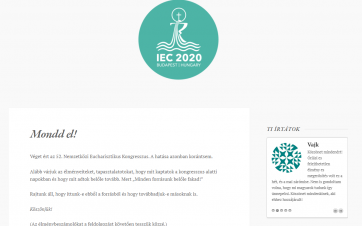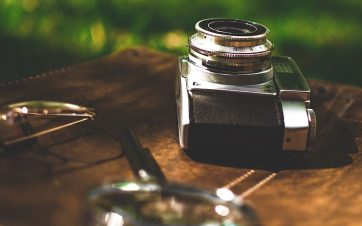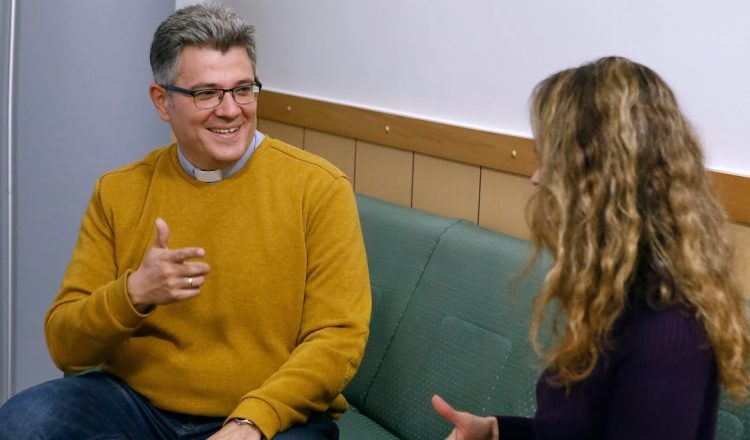
Many have been saved from starvation by us, Hungarians

- What was the motivation of this Saint Martin’s day initiative?
Along the recent years we have often reported on the medical mission carried out by Dr. András Csókai and Dr. Réka Fodor in the city of Onitsha, Nigeria. Faced with the circumstances the doctors are working in, it has been all too obvious to stand alongside, and to familiarise our readers with both their activities and the locals’ life. At the Holy Mass we confess our faith in the Catholic Church, in the one Church that is universal, alike to as written by St. Paul: “just as a body, though one, it has many parts.”
Therefore, should there be a deprivation somewhere, we need to turn our focus towards them.
Shortly after the pandemic outbreak this spring, a situation of humanitarian catastrophe has evolved in Nigeria. This part of the world is known for its unimaginable extreme poverty: people’s daily income does not even reach a single dollar, there is neither electricity, nor drinking water. When the pandemic stormed in, people were forced into quarantine, moreover they had neither money, nor any chance to buy food.
We asked our readers in spring and also in summer to support the Nigerian nation with donations. Pursuant to this call for help, the donation received could cover the costs of rice. Purchase was made by the Afréka Foundation, while its distribution amongst the needy was carried out with the assistance of the local archdiocese and the parish network. In September, Valerian Okeke, Archbishop of Onitsha sent a letter to Cardinal Péter Erdő, expressing his thanks alike: “many of us, who otherwise would have starved to death, had been saved by Hungarians.” Unfortunately the pandemic is not yet over, and so came the idea to support the people of Onitsha with prayers and donations, similarly to the then still pagan Saint Martin, who shared the half of his coat with a beggar. We have gladly experienced that Cardinal Péter Erdő and András Veres, President of the Hungarian Catholic Bishops’ Conference (HCBC) have undertaken to stand by our initiative as patrons.
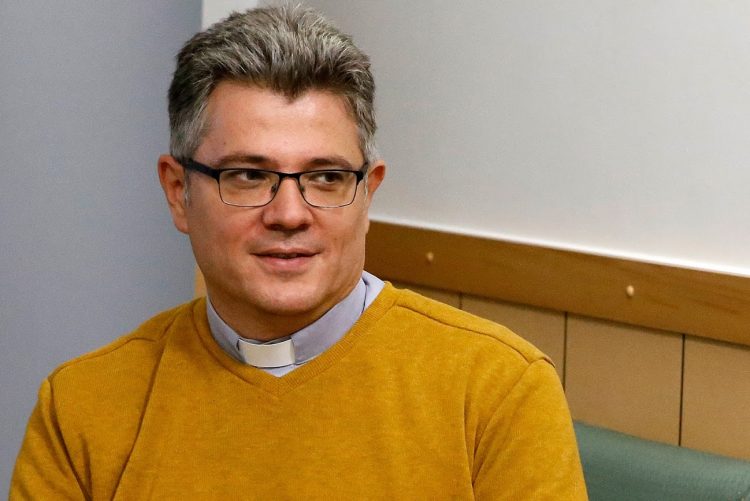
- Facing others’ difficulties and miseries is rather difficult, since these issues are often beyond our comfort zone. How do you see the solidarity of people, are they able to open up towards others’ problems?
The world is bad, as we often think so – and such an emotion has been intensified, nowadays in particular, when we may tend to separate ourselves. At the same time, we must not forget that God has created mankind in His own image, and one of Lord’s greatest deeds was the love of giving. This is what we celebrate at Christmas, in the very secret that the Father gave us his Son.
The will of giving is there, deep in everyone’s soul – the big secret of having been created in the image of God.
Upon our calls, there have always been support, charity donations: in spring, summer and still nowadays. “That’s a miracle” - said both Réka and Archbishop Okeke, and it is so even for me. What a genuine, visible example of selflessness and solidarity! It seems that people are good and open- hearted. Upon our present invitation, millions of forints (HUF) have been received to the Afréka Foundation’s account, mainly in the amount of between HUF 1,000 and 10,000, meaning that this sum have been collected from the two pennies of the poor woman in the Scriptures – and this we really take as a miracle.
- The pandemic came along with a great deal of difficulties. Still, what can be turned into good out of this situation?
Gergely Kovács, Archbishop of Gyulafehérvár, told us a story in his current year’s homily in Csiksomlyó: an aged man farmed his ranch with his son. Once, following a storm, the horses run away from fright. Neighbours expressed their regret, but the wise old man asked: How do you know this is bad so? A few days had passed and the horses returned together with many others, since some wild horses joined them. The people were happy, but the wise old asked: How do you know this is good so? The son wanted to break in the wild horses, but fell off one of the horses and broke his leg. Neighbours expressed their sympathy, but the wise old repeated his question: How do you know this is bad so? And he proved to be right again, a war broke out, all the young boys were enlisted, except for his son, who, due to his broken leg, had to stay at home. I told you this story, as an example, since one never knows: the good proves to be bad, while the bad turns out to be good after all.
As far as I see, this virus resulted in some good (as well), since our personal relations have strengthened, we care more and help each other.
I do believe that our being in the image of God has been recalled by all this: to be honest, I take it as a result, that in the course of such a fundraising action our hearts have not been closed, rather they have opened up.
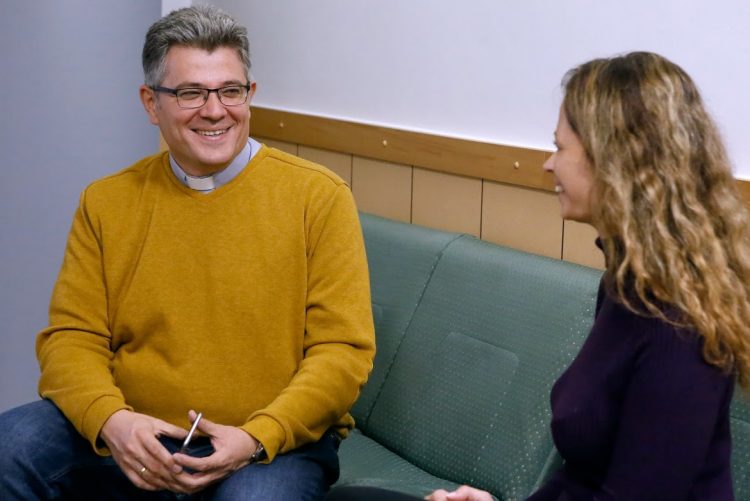
- What does St. Martin’s model mean to you?
Many times we don’t even think about it, either doing something good or bad, that all is done with Jesus – as it appears in the St. Martin’s coat sharing story. Let me tell you a personal story of mine: Once, I attended a retreat in a spiritual camp together with Miklós Vigyázó parish pastor. At the Holy Mass, at the “Our Father” prayer, the Father asked us to form a circle, and step closer to the altar centre, all hand in hand. There in the middle there was already the Holy Sacrament. Then we were asked to step back. What was the message? When we made a step towards the Holy Sacrament, we got closer to Jesus and to each other, while when we were distancing away, we got a bit away from both Jesus and each other. I do not think we could visualise the miracle relating to St. Martin or Jesus’s message itself in a more beautiful manner. I do believe that by present call for charity we get closer not only to God but to each other as well.
Source: IEC
Photo: Marcsi Ambrus




